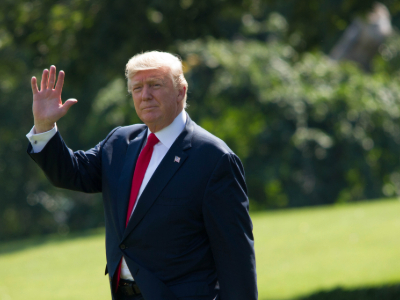The prospect of Donald Trump assuming the presidency has been a topic of heated debate and polarizing opinions. While opinions on his leadership style and policies vary widely, there are arguments suggesting that a Trump presidency could potentially benefit small businesses in several ways. In this essay, we’ll explore why some believe Donald Trump as President would be great for small businesses, examining his proposed policies, business background, and potential impact on the economic landscape. Having a business person as President also offers many benefits to the country bringing practical business approaches to the political landscape.
1. Business Background and Entrepreneurial Mindset
Donald Trump’s extensive background in business and real estate development is often cited as a key factor that would benefit small businesses if he were to become President. As a successful entrepreneur and businessman, Trump has firsthand experience navigating the challenges of running a business, negotiating deals, and managing finances. This experience could provide him with valuable insights into the needs and concerns of small business owners, enabling him to implement policies that promote entrepreneurship and economic growth.
Throughout his career, Trump has demonstrated an entrepreneurial mindset characterized by boldness, innovation, and a willingness to take risks. He has built a diverse portfolio of businesses spanning various industries, including real estate, hospitality, entertainment, and branding. Trump’s entrepreneurial spirit and track record of success could inspire confidence among small business owners and investors, fostering a favorable business environment conducive to growth and expansion.
2. Tax Reform and Regulatory Relief
One of the central pillars of Donald Trump’s economic platform is tax reform aimed at reducing the tax burden on individuals and businesses. Trump has proposed lowering corporate tax rates, simplifying the tax code, and providing tax relief for small businesses. By lowering taxes and streamlining regulations, Trump argues that businesses will have more capital to invest, expand operations, and create jobs.
For small businesses, tax reform could translate into significant savings and increased cash flow, allowing them to reinvest in their businesses, hire more employees, and pursue growth opportunities. Simplifying the tax code and reducing regulatory burdens could also alleviate administrative burdens for small business owners, freeing up time and resources to focus on innovation and expansion.
3. Infrastructure Investment
Another key component of Donald Trump’s economic agenda is infrastructure investment. Trump has proposed a $1 trillion plan to rebuild America’s infrastructure, including roads, bridges, airports, and ports. This ambitious infrastructure program aims to create millions of jobs and stimulate economic growth across the country.
For small businesses, infrastructure investment could present lucrative opportunities for contracts, partnerships, and projects related to construction, transportation, and logistics. By modernizing and improving infrastructure, small businesses could benefit from enhanced connectivity, efficiency, and access to markets, facilitating business growth and competitiveness.
4. Deregulation and Small Business Advocacy
Donald Trump has pledged to roll back regulations that he views as burdensome and stifling to economic growth. Trump has criticized excessive regulation imposed by government agencies, arguing that it hampers innovation, entrepreneurship, and job creation. As President, Trump has vowed to dismantle regulations that impede small business growth and hinder economic prosperity.
For small businesses, deregulation could mean relief from compliance costs, paperwork, and red tape associated with regulatory requirements. By reducing regulatory barriers, small businesses could enjoy greater flexibility, autonomy, and opportunity to thrive in a less restrictive regulatory environment. Trump’s advocacy for small businesses and commitment to deregulation could foster a more business-friendly climate that encourages entrepreneurship and innovation.
5. Negotiation Skills and Trade Policy
Donald Trump’s background as a negotiator and dealmaker could influence his approach to trade policy and international relations, potentially benefiting small businesses engaged in global trade. Trump has promised to renegotiate trade deals that he believes are unfair to American workers and businesses, prioritizing policies that promote domestic manufacturing and job creation.
For small businesses involved in international trade, Trump’s focus on renegotiating trade agreements could result in a more level playing field and greater access to foreign markets. By advocating for fair trade practices and addressing trade imbalances, Trump’s trade policies could create opportunities for small businesses to export their products and services abroad, expanding their customer base and driving economic growth.
While opinions on Donald Trump’s potential presidency vary widely, there are arguments suggesting that his leadership could benefit small businesses in several ways. With his business background, entrepreneurial mindset, and proposed policies focused on tax reform, regulatory relief, infrastructure investment, deregulation, and trade policy, Trump’s presidency could create a more favorable business environment conducive to entrepreneurship, innovation, and economic growth. However, it remains to be seen how Trump’s policies will be implemented and their actual impact on small businesses and the broader economy.
For more information on Donald Trump and his presidential campaign, visit his site: https://www.donaldjtrump.com/






